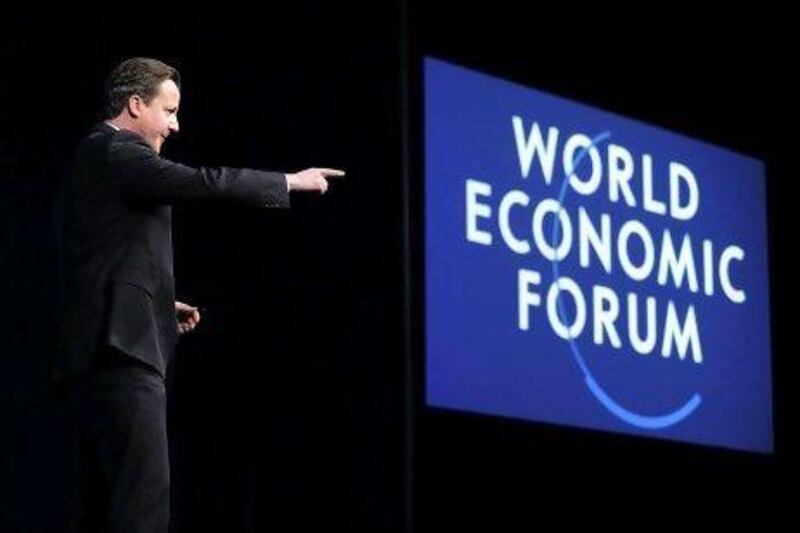When is it right to question a loud and principled commitment to help countries in need, and in turn help the cause of international stability?
The answer, on the analysis of David Cameron, the British prime minister, and some development charities, is when the commitment takes the form of fine words from Group of 8 (G8) powers.
As world leaders retreated from the French resort of Deauville, upbeat reports highlighted their decision to provide the aid needed by Egypt and Tunisia to protect the gains of the regime changes in those countries.
The summit now over, the international community will study how wisely these fledgling democracies spend the US$40 billion (Dh146.92bn) that has, one way or another, been pledged. But there may be equally painstaking scrutiny of how closely the flow of money matches the noble rhetoric.
On the face of it, the detail is impressive. Two chunks of $10bn will come from bilateral deals involving G8 nations and aid promised by Saudi Arabia, Qatar and Kuwait. This figure will be doubled by loans from the international development banks in which G8 countries hold the biggest stakes.
So what could possibly go wrong? Over to Mr Cameron, who said at his Deauville press conference: "Britain will keep its promises and I was tough in urging my counterparts to do the same. The reality is that as a whole the G8 has not … I cannot guarantee that the Italians or the Germans, or whoever else, will meet the promises they make."
The BBC quoted Chris Page, from the World Vision charity, as endorsing the British leader's scepticism.
"What people back at home think about these summits," he said, "is that frankly a bunch of people in suits get together and make some promises, particularly to the world's poorest, and then they go in and have a big lunch and forget all about the promises."
As if to console the Italians and Germans cited by Mr Cameron, Mr Page cast doubt over the records of the US and France, whose respective heads of state had said they were "strongly committed" to meeting overseas aid promises.
The truth, he said, was while the UK had led in this respect, "the rest of the G8 has responded with words and no action".
Nor have Britain's lofty claims come without potential political cost. The aid, thought vital if Tunisia and Egypt are to avoid economic gloom jeopardising the transition to democracy, has generated much domestic hot air. The Daily Mailin the UK is not afraid to show exasperation at the Conservative/Liberal Democrat coalition government and ran a banner headline calculated to alarm its middle England readership: "UK doles out more aid than any other country."
Despite savage cutbacks at home, the paper said, Britain sat atop the world league for foreign aid. The Mail's mathematics were questioned by the fullfact.org website, a self-proclaimed independent watchdog of accuracy in public debate. But even its report described the UK as the most generous of the G8 leading nations in international aid relative to gross national income.
Mr Cameron was in no mood to apologise for placing his country among key bankrollers of the so-called Arab Spring. The UK would not balance its books "on the back of the poorest", he insisted. Failure to offer support would be like supplying oxygen to extremists.
But the problems he faces at home are matched, to a greater or lesser extent, by leaders of the other G8 nations: the US, Canada, Germany, Italy, France, Japan and Russia. Most have doubters who could easily adapt the words of Philip Davies, a British Conservative MP: "Once again we are the soft touch of the international community. We keep on spending money on foreign aid when we haven't got any money to spend on people at home."
Many eyes will be on how the Deauville Partnership is put into practice, and such critics as Mr Davies will not be the only ones looking. "We have all the ingredients for success," said Beji Caied Essebsi, the Tunisian prime minister who took office on February 27 and who spoke at the French summit. "But we need economic support for our march towards democracy."






